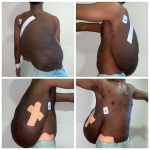May 9, 2020
New York: Loss of taste or smell is now among the new coronavirus symptoms that the US Centers for Disease Control and Prevention (CDC) has added to its official list and now, a new study says that loss of the sense of smell is most likely to occur by the third day of infection with the novel coronavirus.
Most of these patients are also experiencing a loss of the sense of taste, said a researcher from University of Cincinnati.
The study also found that younger patients and women were also more likely to experience a decreased loss of smell.
“We also found that the severity of the loss of smell is correlated with how bad your other COVID-19 symptoms will be. If the anosmia, also known as loss of smell, is worse, the patients reported worse shortness of breath and more severe fever and cough,” said Ahmad Sedaghat, associate professor in the UC College of Medicine’s Department of Otolaryngology-Head and Neck Surgery.
The study examined characteristics and symptoms of 103 patients who were diagnosed with COVID-19 over a six-week period at Kantonsspital Aarau in Aarau, Switzerland.
Patients were asked how many days they had COVID-19 symptoms and also asked to describe the timing and severity of loss or reduced sense of smell along with other symptoms.
At least 61 per cent of the patients reported reduced or lost sense of smell, said Sedaghat.
The mean onset for reduction or loss in the sense of smell was 3.4 days.
“The relationship between decreased sense of smell and the rest of the COVID-19 is something to be aware of. If someone has a decreased sense of smell with COVID-19 we know they are within the first week of the disease course and there is still another week or two to expect,” suggested Sedaghat.
Sedaghat said experimental antiviral drug, remdesivir, developed by Gilead Sciences to initially treat Ebola, is showing some promise in treating COVID-19 patients.
“Antiviral medications have historically worked best when given early during a viral infection. The same is hypothesized to be true for remdesivir,” said Sedaghat.
“Once remdesivir becomes more widely available, decreased sense of smell may therefore identify patients who would be excellent candidates for the medication,” said the study available online in the scholarly journal Otolaryngology-Head and Neck Surgery.
The loss of smell is an indicator of COVID-19 but it’s not the only factor.
‘When you start to experience serious symptoms of COVID-19 which include shortness of breath and respiratory distress, that’s when you should become alarmed,” he added.
IANS



















